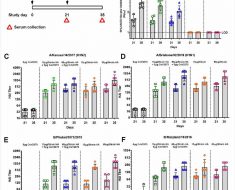We will use your email address only for sending you newsletters. Please see our Privacy Notice for details of your data protection rights.
Jodie Kidd, 42, is a model, racing driver, and television personality. The star enjoys a quieter life these days and reveals how in the peak of her career she suffered with a health issue that forced her to quit modelling. What are the symptoms to spot?
Jodie spoke to OK! Magazine and said: “I suffered from anxiety through most of my modelling career which is the reason why I stopped modelling.
“I got to a point where it haunted my whole life.”
After 20 years in the industry, Jodie gave up modelling, although she made a dramatic return in 2018 on the catwalk for Vila Nomi and an Alice Temperley campaign.
Her race car driving passion has allowed Jodie to release adrenaline and have better control of her anxiety.

Jodie Kidd has revealed how a “huge” panic attack led her to quit modelling, aged 19.
“I used to think I was having a heart attack,” the 41-year-old told The Daily Mail.
“My heart would race; I’d go all clammy and feel faint.”
“The last time I walked the catwalk in my teens, I suffered a huge panic attack halfway down. Everyone was staring at me and I just wanted to flee. I got off and vowed never to return.”
The star added: “When you’ve got anxiety it’s your adrenal gland releasing that fight or flight which is very much what I do in most of my things, like racing cars, it’s pumping your body with adrenaline.
“Maybe that’s because I have too much and by releasing it by doing scary things, I don’t suffer from anxiety back at home, I’m not sure.
“Maybe I’m just releasing it in other ways because I don’t want to be sitting at home and then flooded with anxiety.”

The Mayo Clinic listed the symptoms of anxiety which include:
- Feeling nervous, restless or tense
- Having a sense of impending danger, panic or doom
- Having an increased heart rate
- Breathing rapidly (hyperventilation)
- Sweating
- Trembling
- Feeling weak or tired
- Trouble concentrating or thinking about anything other than the present worry
- Having trouble sleeping
- Experiencing gastrointestinal (GI) problems
- Having difficulty controlling worry
- Having the urge to avoid things that trigger anxiety
There are various evidence-based treatments that have been found to help with anxiety problems.
One Mind recommends taking treatments. The charity explains: “There are two types of talking treatment recommended for anxiety and panic.
“Cognitive behavioural therapy (CBT) – this focuses on how your thoughts, beliefs and attitudes affect your feelings and behaviour, and teaches you coping skills for dealing with different problems.
“Applied relaxation therapy – this involves learning how to relax your muscles in situations where you normally experience anxiety.”
If anxiety is affecting your daily life or causing you distress, speak to your GP.
Source: Read Full Article





